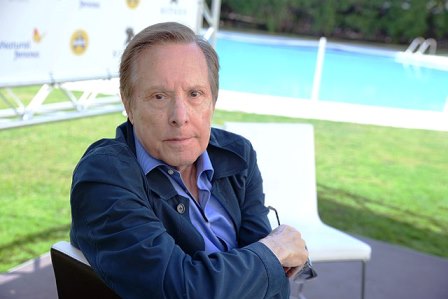William Friedkin, the Oscar-winning director who sprang to prominence in his 30s with the compelling “The French Connection” and the terrifying “The Exorcist” and failed to equal his early success in the decades thereafter, has died. He was 87.
Friedkin, who won an Oscar for best director for “The French Connection,” died Monday in Los Angeles, according to Marcia Franklin, his executive assistant for 24 years, who spoke on behalf of his family and wife, former studio president Sherry Lansing.
“The French Connection,” based on a real incident, follows maverick New York City cop Detective James “Popeye” Doyle’s attempts to hunt down Frenchman Fernando Rey, the mastermind of a huge narcotics pipeline funnelling heroin into the United States. It includes one of the most exciting chase moments ever captured on film.
Doyle, portrayed by Gene Hackman in an Oscar-nominated performance, almost misses making the arrest on a tube train before rushing to his police vehicle to chase the train as it exits on an elevated track. Before abandoning the chase, he sprints underneath, evading vehicles, trucks, and people, including a lady with a baby stroller.
The film also won Academy Awards for best picture, script, and film editing, propelling Friedkin, then 32, to the forefront of a new generation of filmmakers.
“The Exorcist,” based on William Peter Blatty’s best-selling book about a 12-year-old girl possessed by the demon, was his next great hit.
The terrifying sequences of the child’s possession, as well as a stellar cast that included Linda Blair as the kid, Ellen Burstyn as her mother, and Max Von Sydow and Jason Miller as the priests attempting to exorcise the demon from her, contributed to the film’s box-office success. It was so frightening for its day that many spectators left before the end, and several reported being unable to sleep for days afterwards.
It got ten Academy Award nominations, including one for Friedkin’s direction, and won two, for Blatty’s screenplay and sound.
Friedkin would go on to direct films and TV series long into the twenty-first century after that second breakthrough. But he would never be able to equal the success of those early masterpieces again.
“To Live and Die in L.A.,” “Cruising,” “Rules of Engagement,” and a TV version of the iconic play and Sidney Lumet film “12 Angry Men” were among his other cinematic credits. Friedkin also directed episodes of “The Twilight Zone,” “Rebel Highway,” and “CSI: Crime Scene Investigation.”
He started working in local TV programmes as a youngster after being born in Chicago on August 29, 1939. He began directing live concerts by the age of 16.
“My main influence was dramatic radio when I was a kid,” he noted in a 2001 interview. “I remember listening to it in the dark, with nothing but my imagination.” It was just sound. “I start with the sounds and then move on to the images.”
He transitioned from live events to documentaries with “The People Versus Paul Crump,” released in 1962. It was the tale of a death row convict who rehabilitates himself after being condemned to death for the murder of a guard during a failed heist at a Chicago food factory.
Friedkin was so delighted with it that producer David Wolper invited him to Hollywood to helm network TV series.
Friedkin landed his first feature, 1967’s “Good Times,” after working on such programmes as “The Bold Ones,” “The Alfred Hitchcock Hour,” and the documentary “The Thin Blue Line.” It was a joyful musical frolic starring the pop superstars Sonny and Cher in their sole film appearance together.
He then performed “The Night They Raided Minsky’s,” a play about backstage life at a burlesque theatre, and “The Birthday Party,” a comedy by Harold Pinter. He rose to prominence with 1970’s “The Boys in the Band,” a seminal picture about homosexual men.
Friedkin was married three times in the 1970s and 1980s: once to French actress Jeanne Moreau, once to British actress Lesley-Anne Down, with whom he had a son, and once to veteran Los Angeles TV news woman Kelly Lange. Lansing, a Paramount studio executive, married him in 1991.
Friedkin was often asked to reflect on his career in recent years, particularly around the 50th anniversaries of his masterpieces, and he was always forthright. He also published a book, “The Friedkin Connection,” in 2012. And he wasn’t done: “The Caine Mutiny Court-Martial,” starring Kiefer Sutherland, will debut at the Venice Film Festival next month.
When asked about the legendary vehicle chase scenario in “The French Connection,” Friedkin told NBC News in 2021 that it was truly life-threatening and that he would never do it again.
“Everything you see was done by us. There was no computer-generated imagery back then. There was no way around it. “I just pressed the gas pedal and we went 90 miles per hour in city traffic,” he said. “It’s a wonder that no one was wounded. The fact that I was not killed, and that some of the crew members were not injured or murdered. That’s a risk I’d never take again. I was young, and I didn’t care. I just went out and did it. I set out to create a terrific chase scenario with no regard for the implications, and now I do.”
More in Entertainment: https://buzzing.today/entertainment/
Photo Credits: https://commons.wikimedia.org/
